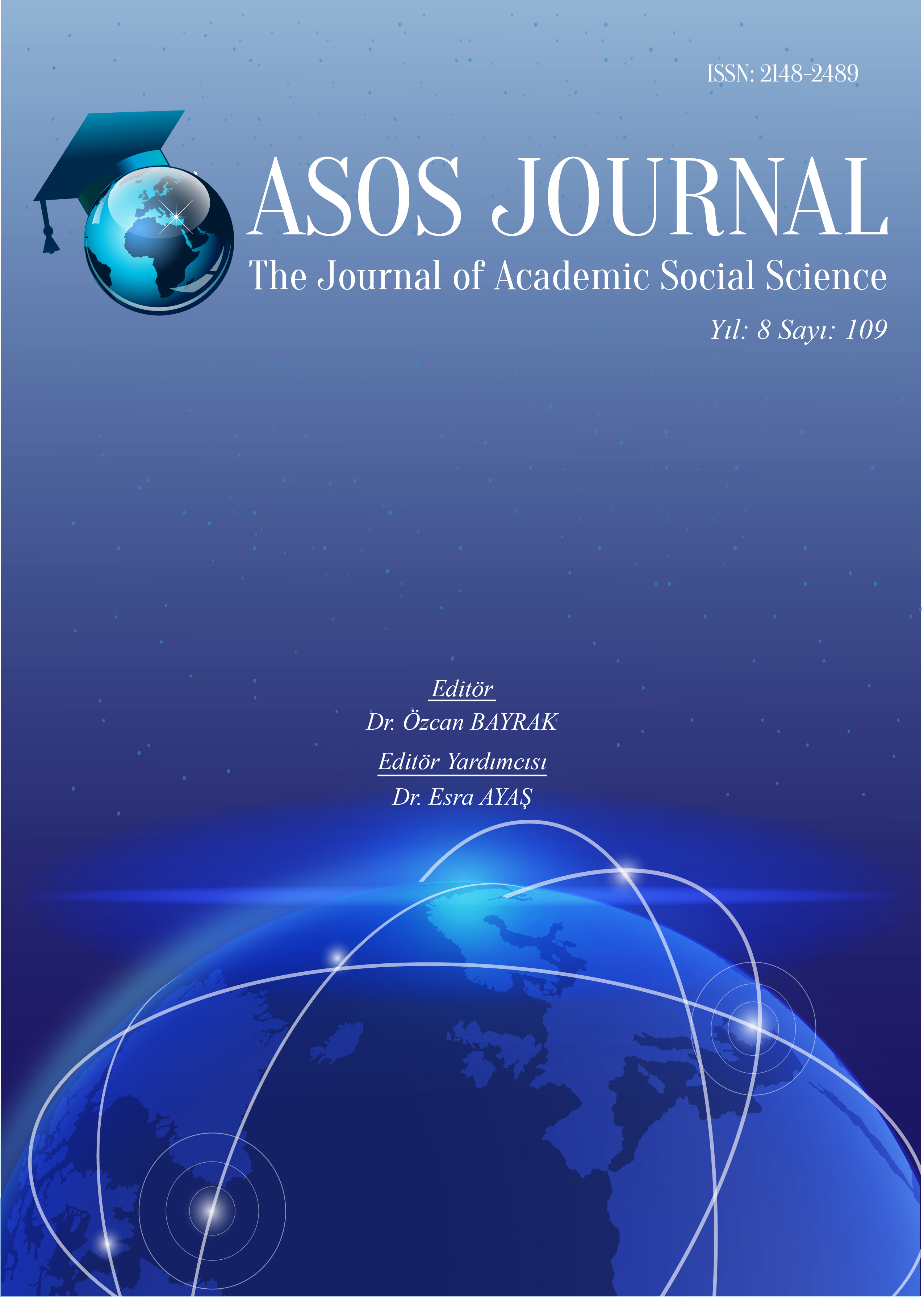Author :
Abstract
Fluxus, 20. yüzyıl sanat hareketleri arasında sanat ve sanatçıya dair tüm paradigmaları sorgulayan duruşu ile sıra dışı deneyimler sunar. Fluxus performanslarının en önemli unsuru deneyim temelli olmasıdır. Kolektif ya da bireysel gerçekleşebilirler. Performanslar, ağırlıklı olarak geleneksel modellerin tek bir perspektiften kontrollü bakışı üzerine düşünmeye odaklıdır. Bu bağlamda müziğin geleneklerini ve yapısını bozup parçalayan yaklaşımlar ile karşılaşırız. Erken fluxus performansları, müziği anda oluş ve zaman ile ilişkisi bağlamında bir eylem biçimi olarak ele alır. John Cage ve öğrencisi George Brecht gibi sanatçıların deneysel ve disiplinler arası eğilimlerini, daha doğru bir ifadeyle, disiplinler arası sınırların eridiği bir anlayışı sergilediği bir dönem olan erken fluxusta, müzik ve eylem ilişkisinin önemli bir yer tuttuğuna dikkat çekmek gerekir. Bu çalışmada, müzik ve eylem ilişkisinin nitelikleri, erken fluxus ve 1961-1964 yılları performanslarına odaklanılarak araştırılmıştır.
Keywords
Abstract
Fluxus offers the most unusual experiences with actions which question all paradigms of art in 20th century art circles. The most important element of fluxus performances is that it is based on experience. They can be realized collectively or individually. The performances are mainly focused on thinking about the controlled view of traditional models from a single perspective. In this context, we encounter approaches that disrupt the traditions and structure of music. Early fluxus performances treat music as a form of action in the context of its relation to instantness and time. It should be noted that the relationship between music and action occupies an important place in the early fluxus, a period in which artists such as John Cage and his student George Brecht displayed their experimental and interdisciplinary tendencies, more accurately, an understanding of melting interdisciplinary boundaries. In this study, the characteristics of music and action in fluxus are investigated by focusing on the performances and events of early fluxus and 1961-1964 time period.
Keywords
- Battcock, G, Nicolas R (1984). The Art of Performance, Ken Friedman Fluxus Performance, E.P.Dutton Inc, New York
- Baudrillard, Jean. (2012). Tüketim Toplumu, (Çev. Nilgün Tutal-Ferda Keskin ) 5. Baskı, Ayrıntı Yayınları, İstanbul.
- Birgül Akçakmak, H. (2017). Gürciyef Sanat Uygulamları ve Performatif Yönelimleri Doktora Tezi, MSGSÜ Sosyal Bilimler Enstitüsü İstanbul
- Brecht, G. (1991–2005). Notebooks I–VII, ed. D. Daniels and H. Braun. Cologne: Walther König.
- Brecht, G. (1970). “The Origin of Events,” in Happening & Fluxus,ed. H. Sohm and Harald Szeeman, Köln: Koelnischen Kunstverein.
- Friedman, Ken (2002). Performance Research, e-publication.
- Higgins, Dick (1964). Postface, , Nice and Cologne: Somethingelse Press, New York.
- Hannah, Higgins (2002). Fluxus Experience, University of California Press.
- Kahn, Douglas (1999). Noise, Water, Meat: A History of Sound in the Arts Cambridge: MIT Press.
- Kostelanetz, Richard (1965). The Theater of Mixed Means, New York: Dial Press.
- Nyman,Michael (1999). Experimental Music, Cambridge University Press;United Kingdom.
- Kaprow, A., Watts, R.,Brecht, G. [1957–8]). ‘Project in Multiple Dimensions Off Limits:Rutgers University .
- Kahn, Douglas (1999). Noise, Water, Meat: A History of Sound in the Arts. Cambridge, MA: MIT Press.
- Stiles, Kristine (1993). "Between Water and Stone; Fluxus Performance, A Metaphysics of Acts." In the Spirit of Fluxus. (Ed. E. Armstrong -J Rothfuss). Minneapolis: Walker Art Center.
- Auslander Philippe(1999). “Fluxus Art-Amusement: The Music of the Future?” Art Papers 23, s.30-35.
- Cage, John (1965 ). journal tulane drama 10, no.2. kış TDR LATER CALLED DRAMA review s.39-47
- Dezeuze, Ann (2002).“Origins of the Fluxus Score “Performance Research Volume 7, s. 78-94, Routledge Taylor/Francis LTD
- Johnston, Jill (2006). ”George Brecht, the Philosopher of Fluxus”, Art in America. 2006;94(04), s. 112-119.
- Brecht, G. (2004[1966]). Chance Imagery. New York: Something Else Press. [Reprinted in 2004 by UbuClassics. URL: http://www.ubu.com/historical/gb/brecht_chance.pdf]
- http://www.primaryinformation.org/product/allan-kaprow/Ocak 2020
- http://artype.de/Sammlung/pdf/brecht_chance.pdf/ Ocak 2020





